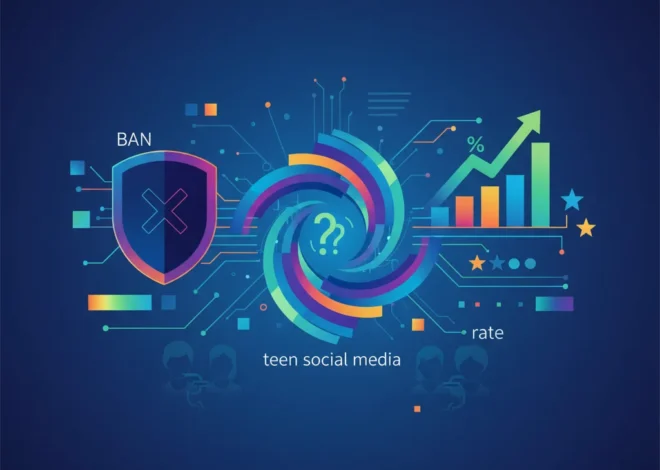
The Walled Garden’s Last Stand: Is the UK About to Topple Apple’s App Store Empire?
For over a decade, the Apple App Store has been more than just a marketplace; it’s been a digital fortress. A meticulously curated, highly secure, and incredibly profitable “walled garden” where every app, every update, and every transaction is governed by Apple’s stringent rules. For millions, it’s the only way to get software onto their iPhones. But the walls of that garden are starting to show cracks, and a new piece of legislation in the UK might just be the tremor that brings a section of it tumbling down.
The UK’s Competition and Markets Authority (CMA) has fired a significant shot across the bow, declaring that Apple and Google wield an “effective duopoly” over the mobile ecosystem. In a move that mirrors seismic regulatory shifts in Europe, the UK is paving the way for a future where Apple may be legally compelled to allow rival app stores on its devices. This isn’t just a minor policy tweak; it’s a fundamental challenge to the core of Apple’s philosophy and business model. For developers, startups, and tech professionals, this signals a potential paradigm shift—one filled with immense opportunity and new, complex challenges.
So, what does this digital market shake-up truly mean? Let’s break down the CMA’s decision, explore the global context, and analyze the profound implications for the future of software, innovation, and the very device in your pocket.
The Duopoly Dilemma: Why Regulators Are Taking Aim
At the heart of the issue is a concept that has dominated tech antitrust discussions for years: market control. The CMA’s investigation concluded that Apple and Google’s dominance in mobile operating systems, app stores, and web browsers gives them unparalleled power. According to the BBC’s reporting on the matter, this control stifles competition and limits consumer choice.
But what does this “duopoly” look like in practice? It means:
- For Consumers: Your choice of apps is filtered through a single gatekeeper. While this provides security, it also means you only see what Apple approves. It also impacts pricing, as developers often pass on the commission fees to the end-user.
- For Developers: You have one primary channel to reach over a billion iOS users, and it comes with a non-negotiable price tag. Apple’s commission, often referred to as the “Apple Tax,” takes a 15-30% cut of revenues for paid apps and in-app purchases. This can be a major hurdle, especially for startups and small businesses trying to build a sustainable SaaS model.
The CMA’s proposed Digital Markets, Competition and Consumers (DMCC) Bill aims to dismantle this structure. If passed, it would grant the regulator powers to designate firms with “Strategic Market Status” and enforce specific conduct requirements. A key requirement on the table is forcing these tech giants to allow “sideloading”—the installation of apps from third-party sources—and the presence of alternative app marketplaces. This isn’t a theoretical threat; the EU’s Digital Markets Act (DMA) has already set a precedent, forcing Apple to make significant changes for its European users earlier this year (source).
Beyond the Zap: How AI and the Cloud are Transforming the Taser
The Pros and Cons of an Open Ecosystem
Apple has long defended its walled garden on the grounds of security, privacy, and user experience. They argue that every app on the App Store is vetted for malware and privacy violations, creating a trusted environment. Opening the gates, they contend, would be an invitation for cybersecurity threats and a degraded user experience. It’s a powerful argument, but one that regulators are increasingly challenging as a convenient shield for anti-competitive practices.
Let’s visualize the two competing philosophies in a more structured way.
| Feature | Apple’s Walled Garden (Current Model) | Proposed Open Ecosystem (Future Model) |
|---|---|---|
| App Distribution | Single source: The official App Store | Multiple sources: Official store, third-party stores, direct downloads |
| Developer Fees | 15-30% commission on most transactions | Competitive fees set by different marketplaces, or no fees for direct sales |
| Security & Privacy | Centralized, rigorous vetting by Apple; high user trust | Decentralized; responsibility shifts to the user and third-party store operators, increasing cybersecurity risks |
| Innovation & Content | Content restricted by Apple’s guidelines (e.g., rules on certain types of apps, in-app payment systems) | Fewer restrictions, potentially fostering more experimental software and business models (e.g., crypto, cloud gaming) |
| User Experience | Consistent, streamlined, and simple | Potentially fragmented, more complex, but offers greater choice and customization |
What This Means for the Tech Industry: From Startups to AI
The potential ramifications of this legislation extend far beyond Apple’s bottom line. They touch every corner of the tech ecosystem, from the solo developer building their first app to the enterprise deploying complex AI solutions.
A New Dawn for Startups and SaaS Companies
For startups, the 30% commission can be the difference between profitability and failure. An open market could be a game-changer. Imagine a startup building a niche SaaS product. Instead of forfeiting a huge chunk of their subscription revenue, they could direct users to download their app from their own website, using their own payment processor. This direct-to-consumer model, powered by scalable cloud infrastructure, gives them more control over their finances and customer relationships. It lowers the barrier to entry and could fuel a new wave of software innovation.
The Cybersecurity Conundrum
With great freedom comes great responsibility. The biggest counterargument to an open ecosystem is the threat to cybersecurity. Malicious actors could create fraudulent app stores to distribute malware, phishing apps, or software that exploits user data. This will place a greater onus on users to be vigilant and on developers to invest heavily in securing their applications, regardless of where they are distributed. The demand for advanced cybersecurity solutions that leverage automation and machine learning to detect threats across different platforms is likely to skyrocket.
The Billion Handshake: Why Tech Giants Are Buying the Physical 'Warehouses' of the AI Revolution
Unlocking New Frontiers in AI and Machine Learning
Apple’s App Store guidelines, while designed to protect users, can sometimes stifle cutting-edge innovation. An application leveraging a powerful, experimental artificial intelligence model might be rejected for being too resource-intensive or for reasons that aren’t transparent. Alternative app stores could become havens for more experimental AI software. We could see marketplaces dedicated to:
- Advanced AI Tools: Apps that offer unfiltered access to large language models or generative AI for professional use cases that might not fit Apple’s consumer-friendly mold.
- Niche ML Applications: Highly specialized machine learning apps for scientific research or industrial automation that wouldn’t have a broad enough appeal for the main App Store.
- Decentralized AI: The development of AI agents and services that run directly on-device, free from the constraints of a central gatekeeper’s rules on data processing and functionality.
This shift could accelerate the pace of AI development on mobile platforms, as developers gain more freedom in their programming and deployment choices.
The Road Ahead: A Global Regulatory Domino Effect
The UK’s actions are not happening in a vacuum. They are part of a global trend. The EU’s DMA is already in effect, and regulators in the US, Japan, and Australia are conducting similar investigations. The global app economy, which was valued at over $600 billion in 2021, is being reshaped by these legal challenges. Apple and Google are no longer just fighting individual lawsuits; they are facing a coordinated, international push to redefine the rules of digital commerce.
For tech professionals, this means the landscape is becoming more complex. Businesses will need to develop multi-platform, multi-store strategies. Developers will need new tools for programming and managing builds across different ecosystems. And entrepreneurs will find new opportunities to build the very infrastructure—from secure third-party stores to cross-platform payment systems—that this new world will require.
Capita's £14m Nightmare: A Data Breach Wake-Up Call for Every SaaS, Startup, and Enterprise
Conclusion: The End of an Era, The Beginning of…?
The potential opening of Apple’s walled garden in the UK is more than just a headline; it’s a harbinger of a new era for the mobile internet. The move from a tightly controlled duopoly to a more open, competitive market represents one of the most significant shifts in consumer technology in a decade. It promises to boost innovation, empower developers, and offer consumers more choice, but it also introduces genuine concerns about security and fragmentation.
The battle is far from over. Apple will undoubtedly continue to advocate for its model and challenge these regulations. But the direction of travel is clear. The question is no longer *if* the walls will come down, but *how* they will be rebuilt. Will this regulatory push usher in a golden age of mobile software innovation, or will it create a chaotic digital wild west? The answer will shape the future of technology for years to come.

